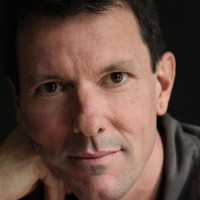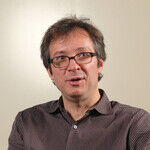In December 1970, when I was a 10-year-old boy traveling with my family in the Holy Land, we took a short drive from Israel into Jordan, and my grandmother incautiously fell into a conversation with the Arab driver about religion.
"Pope Paul is good," the driver said, referring to the pope at the time. "But when Pope John talked, the whole world listened!" I recall that my grandmother was somewhat offended because she perceived a slight against the sitting pope. But my mother told me: "The driver was right. Everyone loved Pope John."
If the whole world listened to Pope John XXIII, it was in part because he spoke to the whole world — as a gentle, humble, holy man who radiated love.
He once said to a diplomat: "I know you are an atheist, but won't you accept an old man's blessing?" He addressed his encyclical "Pacem in Terris" ("Peace on Earth") to not just the customary audience of Catholic faithful but also "all men of good will." When some in the Vatican complained to Pope John that people could see him on his daily walks in the gardens — objecting, apparently, because it diminished the awe of the papacy — he responded: "Why should people not see me? I don't misbehave, do I?"
There was something of that image on Wednesday as former Cardinal Jorge Mario Bergoglio appeared on the balcony of St. Peter's Basilica — an older man, dressed only in the simple white cassock, standing silently, appealing for a blessing, offering a blessing "to the whole world, to all men and women of good will," and taking the name Francis.
Francis. That's one step below taking the name Jesus. Francis is the most beloved Catholic saint, in and outside the Roman Catholic Church. When Pope John Paul II invited representatives of the world's religions to gather together to pray in 1986 and again in 2002, he invited them to Assisi.
Francis shunned money and property. He had no thought for tomorrow. He embraced lepers because, for him, they embodied Christ in his last tortured moments. He traveled to Egypt in 1219 to try to end the crusades by meeting with the sultan. G.K. Chesterton wrote of Francis, "He seems to have liked everybody, but especially those whom everybody disliked him for liking."
How much this pope will resemble his predecessor John or his namesake, Francis, will be seen. This is the season of scandal, so the world's press will be turned loose on his past, exploring every aspect of his conduct during Argentina's military dictatorship. It would be disastrous for the church if the cardinals come to regret their choice.
Yet one can see why they chose Cardinal Bergoglio. He is a man of prayer who lived in an apartment instead of a palace, took the bus instead of a car, prepared his own meals instead of hiring a cook, and took up the cause of the poor and forgotten.
Those qualities are indispensable for these times. The leaders of the church must speak the truth of their faith. But before they can speak their truth with impact, they have to connect emotionally, socially and spiritually with the people they hope to teach. That connection has frayed.
The faithful see the flaws and sins of church leaders in a way they didn't before. When so much unflattering information is known, the sense of mystery that served the church for so long to keep the faithful in awe will not work. Mystery must be replaced by authenticity.
The connection has frayed also because we live in an age of many options. The Roman Catholic Church no longer has a captive audience. It no longer has a monopoly on the social and religious lives of the faithful in the way it did in this country as recently as the 1960s. In this climate, it is not the flock that needs to meet the demands of the shepherd. It is first the shepherd who needs to earn the trust of the flock.
The more the sins of church leaders are known and the more options people have to seek spiritual fulfillment elsewhere the more essential it is to place in prominent church positions men and women of courageous virtue.
It's hard for the church to make a case for the faith unless it also can show us the transformative effect of that faith — clear evidence of goodness. It is not enough for church leaders to achieve holiness that is visible only to God. To attract a distracted world, faith needs to manifest itself in virtues we can see — compassion for others, love for the poor, passion for justice, indifference to power, deep humility and a forgiving nature. Only if church leaders embody those qualities are they likely to get the people of this age to emerge from their electronic trance and pay attention to the purpose of their lives.
Perhaps that was some of what the cardinals were thinking when they chose Jorge Mario Bergoglio as pope. Perhaps that was some of what Cardinal Bergoglio was thinking when he chose the name Francis. A pope who stirs the pride of Catholics and invites the admiration of the world is what the church needs now.
Tom Rosshirt was a national security speechwriter for President Bill Clinton and a foreign affairs spokesman for Vice President Al Gore. Email him at [email protected]. To find out more about Tom Rosshirt and read features by other Creators Syndicate writers and cartoonists, visit the Creators Syndicate Web page at www.creators.com.






View Comments